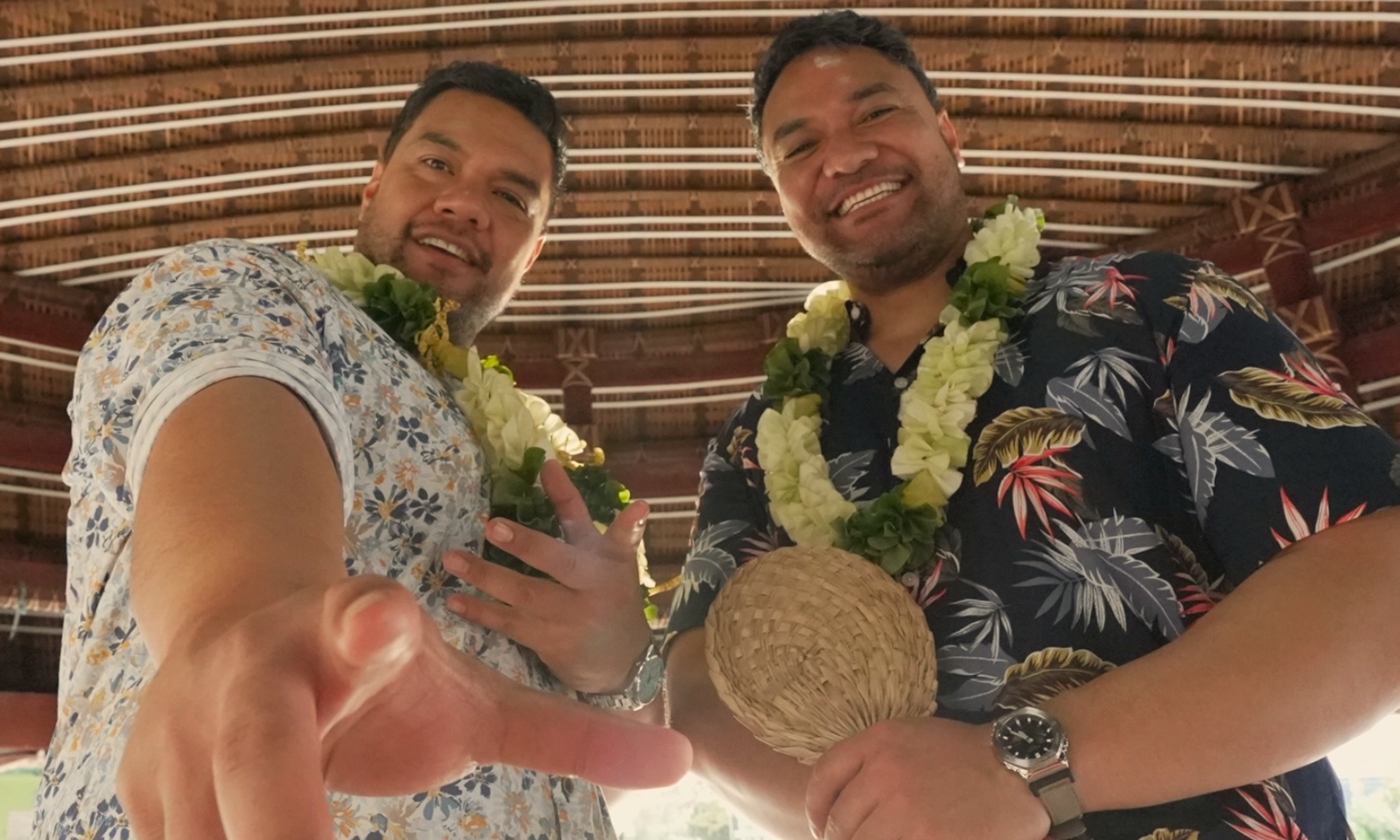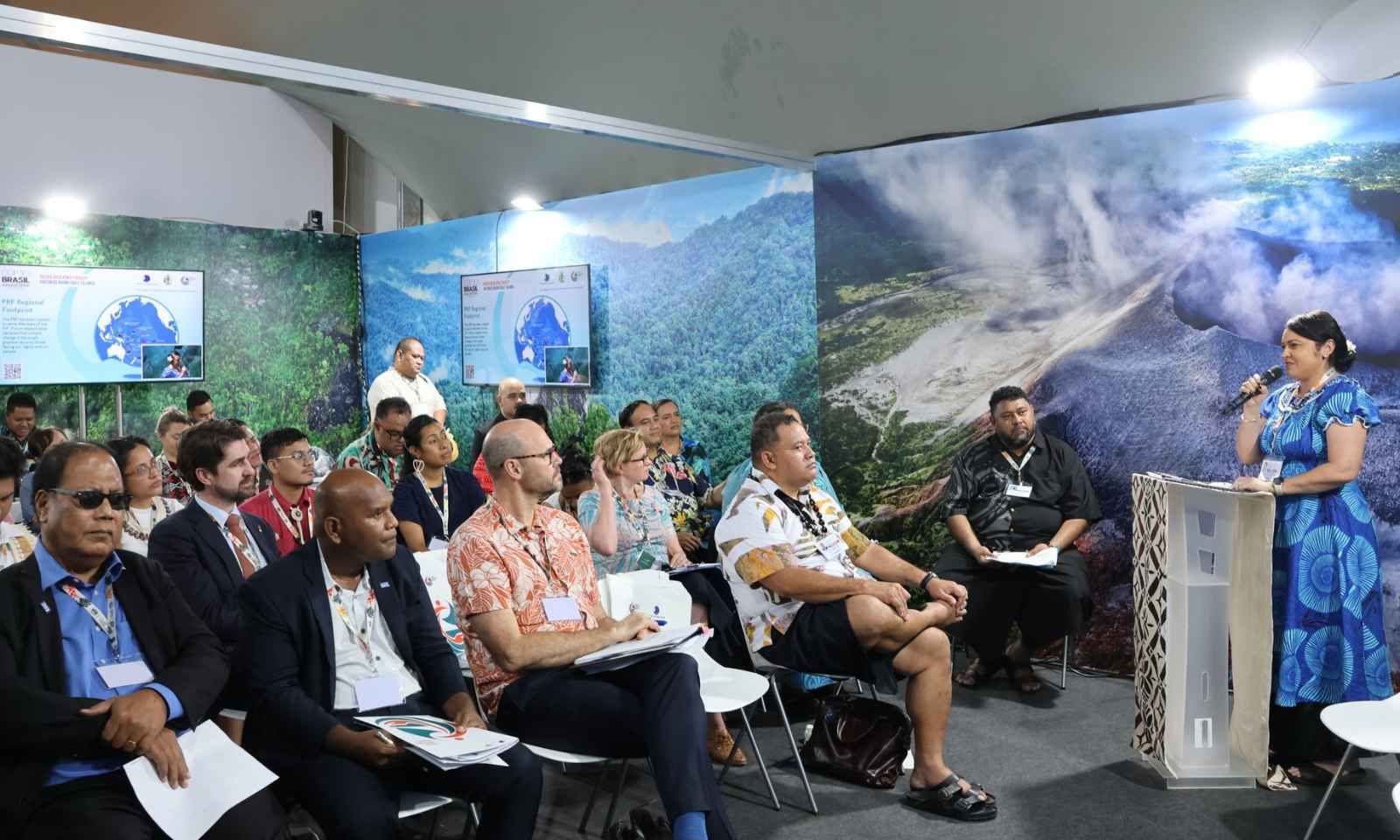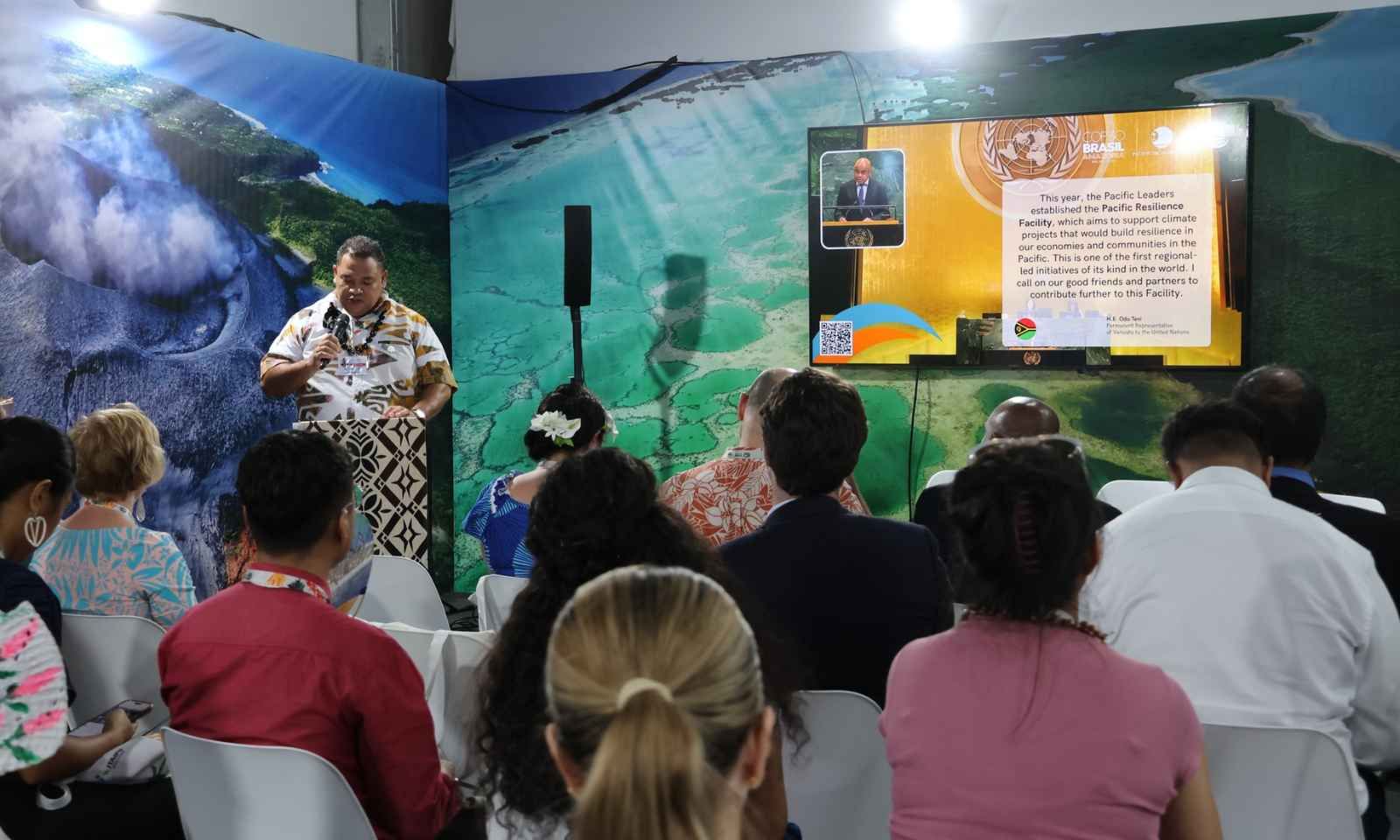

Secretary General of the Pacific Island Forum Baron Waqa (second from left) and climate finance and resilience advisor Karlos Moresi (far right).
Photo/Supplied
Political tensions emerge as Australia-Pacific bid for COP31 faces Türkiye standoff
Diplomatic and political manoeuvring, particularly within the European bloc, is complicating negotiations in Brazil, an expert says.



The Sāmoan Tenor named Pati who turned disadvantage into an operatic destiny

Realm relations in focus as Tokelau-NZ marks 100-year history



‘One of our most trusted leaders’: Tributes flow for a beloved rangatira

The Sāmoan Tenor named Pati who turned disadvantage into an operatic destiny

Realm relations in focus as Tokelau-NZ marks 100-year history

A negotiator for the Pacific says Australia and the Pacific’s bid to host the 31st Conference of the Parties (COP31) is facing diplomatic challenges as Türkiye refuses to withdraw its own bid.
At COP30 in Belém, Brazil, this week, Karlos Moresi, an adviser to the Pacific Islands Forum Secretariat (PIFS), says political manoeuvring behind the scenes could determine whether Australia hosts the global summit next year.
“What Australia is saying is that the negotiations are very tough because Turkey is adamant that they want to host the COP,” Moresi told the media.
“We have Australia on the one hand with the Pacific, very adamant that we need to have a COP in the Pacific, but Türkiye’s position is that they’re not giving up.
“With all due respect and in all honesty, there’s a bit of political and eco-manoeuvring happening behind the scenes.”
Australia has submitted a bid to co-host COP31 in 2026 in partnership with the Pacific, which would mark the first time the global summit is held in Oceania.

Pacific leaders and delegates unite at the Moana Blue Pacific Pavilion in Belém. Photo/Supplied
Under the United Nations rules, COP hosting rights rotate among the five regional groups and the host decision must be agreed by all 28 members of the Western Europe and Others Group (WEOG). A final decision was originally expected by June this year.
At the Pacific Island Forum Leaders Meeting held in Honiara in September, leaders reaffirmed their strong support for Australia’s bid to host COP31. They agreed that climate change remains the single greatest threat to the Pacific and that preparations for hosting COP31 are progressing.
Watch the Governor of Oro Province, Papua New Guinea, share a word of encouragement to Pacific youth at COP30 below.
Despite the strong bid, leaders also welcomed the opportunity to constructively work with Türkiye, should they win the host bid, to demonstrate the Pacific region’s commitment to the multilateral system at a challenging time.
Niue's Minister of Natural Resources, Mona Ainu'u, says hosting COP31 in the Pacific would give the world a first-hand view of why urgent climate action is needed.
She says the fight for hosting rights is about more than prestige, it is about survival. She adds that the global community must deliver on its climate pledges.
“When you have people who greatly depend on the environment, positive outcomes from forums like the COP are a must. It’s a choice we have to make as an international family. Families take care of each other,” Ainu'u says.
“We did not create this crisis, and as a Niuean, I want my one rock to still be standing when my child is at my age, and I want her to enjoy what I have enjoyed.”
While Australia has been actively lobbying for this opportunity, Moresi says several WEOG members, including Germany and France, have not fully committed to supporting the bid.

Tuvalu's Climate Change Minister Dr Maina Talia speaks at COP30. Photo/Supplied
Moresi says Germany’s large Turkish diaspora might be influencing the quiet politics surrounding the decision.
“Although it’s not confirmed, but that geopolitical analysis would indicate that there are some other considerations besides this, it’s usually a straightforward decision to host at the COP.”
This week, Australia and New Zealand met with Pacific delegates in Belém to strategise on securing the regional bid.
Tuvalu, which currently chairs the Pacific Small Island Developing States (SIDS) group, plans to deliver a letter to the WEOG chair urging a final decision in favour of the Australian-Pacific bid to host COP31.
Moresi references a “Plan B” that has been informally discussed among the region’s leaders, in case Turkey’s bid to host is successful.

Mona Ainu'u (right). Photo/Supplied
He says the region’s case for hosting remains strong, grounded in the Pacific’s vulnerability and its leadership in the ‘1.5 To Stay Alive’ campaign, which aims to limit global warming to 1.5 degrees Celsius - a key goal for the survival of vulnerable nations.
When asked about the views of Pacific delegations concerning the World Meteorological Organization’s (WMO) warning that emissions will likely overshoot the 1.5°C goal, Moresi says leaders are optimistic.
“The investment in renewable energy last year was more than 50 per cent, to us that’s a win,” he says. “So despite WMO saying it’s a temporary overshoot, our position is that we’ll try as much as possible to make sure it doesn’t become a long-term overshoot.”